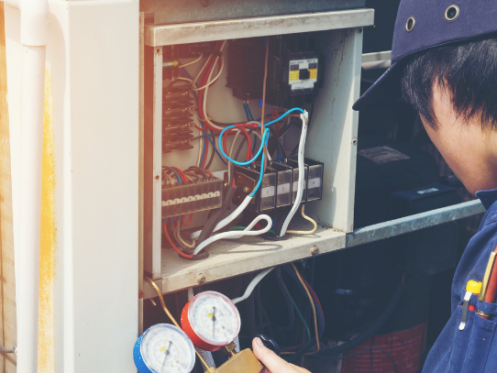Professional HVAC service typically involves an inspection of key components that may be causing issues with the system. The following seven parts play an important role in an HVAC system and may be addressed during a service call.
- Fuse
The fuse in the evaporator coil protects the compressor from overheating by breaking the electrical current when there is a disruption in the flow of electricity. Fuses bear the brunt of damage and burnout to protect the circuit. A blown HVAC fuse may be caused by an electric circuit overload, a shortage in wiring, or a malfunctioning component.
- Contractor
An HVAC system has three contractors — one for each of the main components: compressor, blower motor, and fan motor. The contractor makes an electrical connection between the various parts of the system to transmit important information.
A contractor that’s about to stop working may start humming or chattering. There may even be some melting plastic caused by overheating.
- Capacitor
The capacitor helps the HVAC motor run at a consistent speed and gives the compressors a push in starting torque. But when the capacitor starts to malfunction, the unit may have trouble starting up and the compressor may struggle to fire up. In some cases, the unit may even stutter. Before burning out, the capacitor can create a clicking sound. Homeowners will need professional HVAC service to replace a worn out capacitor.
- Filter
A dirty air filter makes it difficult for the system to circulate air throughout the home, putting a strain on the furnace’s blower. By blocking airflow, a dirty filter can cause the system to overheat and completely shut down.
- Thermostat
The thermostat may require professional service if the unit isn’t starting or shutting down as directed, if the thermostat or interface is unresponsive, or if the temperature in the home doesn’t seem to be consistent. Call Avis for HVAC repair in Orange County, Anaheim, and surrounding areas.
- Drain line
The drain line can become clogged with algae, dirt, and debris, leading to water leakage and damage. It’s important to regularly clean the drain lines to avoid leaks and other issues.
- Compressor
Low refrigerant levels can cause the compressor to overheat and stop working. To avoid this issue, routine HVAC maintenance service is critical.
